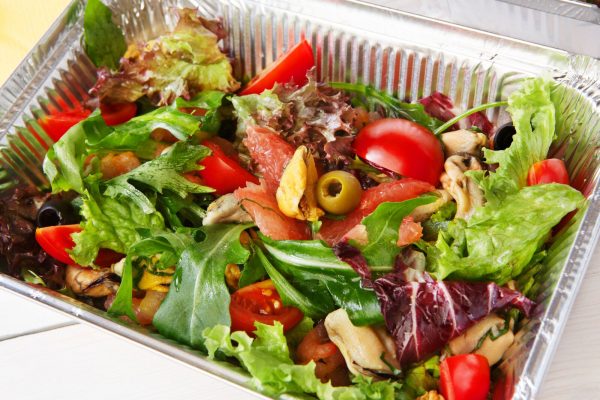Healthy Foods That Can Hit Back Hard

If you’re on a mission to eat “clean,” or simply trying to eat more fruits and vegetables and fewer processed foods, you deserve a round of applause! A diet packed with fruits, vegetables, whole grains, healthy fats, and lean proteins can work wonders for your health, and fight off a host of chronic diseases, including heart disease, type 2 diabetes, and some types of cancer. But there’s a (somewhat) darker side to eating all of those nutritious foods. Don’t stop eating them, but make sure you choose and prepare your foods in a safe way. Check out the foods below and learn how you can safely fit them into your eating plan.
Grilled meat and poultry: Summer just isn’t summer without cookouts or barbeques! There’s nothing quite like a hamburger or chicken breast sizzling on the grill. However, if you’re not cooking your meat or chicken thoroughly, you can end up with a potentially serious case of food poisoning from nasty bugs such as E. coli, listeria, and Salmonella.
- Tips: Don’t guess or go by how well done the meat or poultry is on the outside. Use a meat thermometer to be sure it’s cooked enough on the inside. Cook beef and pork to at least 145 degrees F, and poultry to 165 degrees F.
Salad greens: Eating a salad is a great way to enjoy nature’s bounty while meeting your nutrient goals. No garden of your own? No problem. Your local farmer’s market or grocery store has a lot of options, from romaine lettuce to green leaf lettuce to fancier salad greens. Whatever you choose, wash your salad greens well. Unwashed leafy greens have been responsible for outbreaks of food borne illness.
- Tips: Make sure each lettuce leaf is washed thoroughly before eating, and don’t let your leafy greens (or any produce, for that matter) touch a surface or utensil that has come in contact with uncooked meat or poultry.
Cantaloupe: This sweet, orange melon is packed with vitamins and phytochemicals. One cup of cantaloupe cubes contains just 53 calories and 14 grams of carbohydrate. But, eat cantaloupe with caution. Because these melons grow on the ground, they’re easily contaminated with Salmonella bacteria. Listeria outbreaks have also been linked to cantaloupe.
- Tips: Avoid buying cantaloupe with bruises or dents. At home, scrub the outside of the cantaloupe with dish washing liquid for about 30 seconds before cutting it.
Brown rice: Brown rice is generally considered a better choice than white rice because it’s a whole grain and therefore contains more nutrients and fiber. However, in recent years, high levels of arsenic have been found in rice, leaving people confused and worried. Arsenic is a mineral that’s found in soil, the air, and in water. It’s absorbed into plants, and rice seems to absorb higher amounts than other food plants. Arsenic is linked with a higher risk of some types of cancer, as well as heart disease and diabetes. Unfortunately, brown rice is higher in arsenic than white rice, as the arsenic is found mostly in the husk of the rice grain (white rice is stripped of its husks).
- Tips: Don’t give up your brown rice, but switch it up with other whole grains that are naturally low in arsenic, such as quinoa, amaranth, barley, bulgur and farro. Also, cooking your rice using a 6:1 water-to-rice ratio can remove up to 60% of the arsenic.
Sprouts: Sprouts, such as alfalfa, mung bean or broccoli, are a great way to boost your phytonutrient intake. They’re typically eaten raw or lightly cooked. But eating sprouts ups your chances of food poisoning from E. coli or Salmonella. While commercial sprout growers take steps to minimize the risk, there’s no way to guarantee that they’re free from bacteria. Pregnant women, the elderly, children, and people with weakened immune systems should steer clear of sprouts.
- Tip: Avoid buying sprouts that look slimy or are dark in color. Keep them refrigerated. To lessen your chances of food borne illness, cook your sprouts before you eat them.
No one wants to get sick from eating food, especially healthy food. Properly washing, storing and cooking your food can greatly lessen your chances of getting ill, and will allow you to reap the nutrition benefits that they have to offer.

